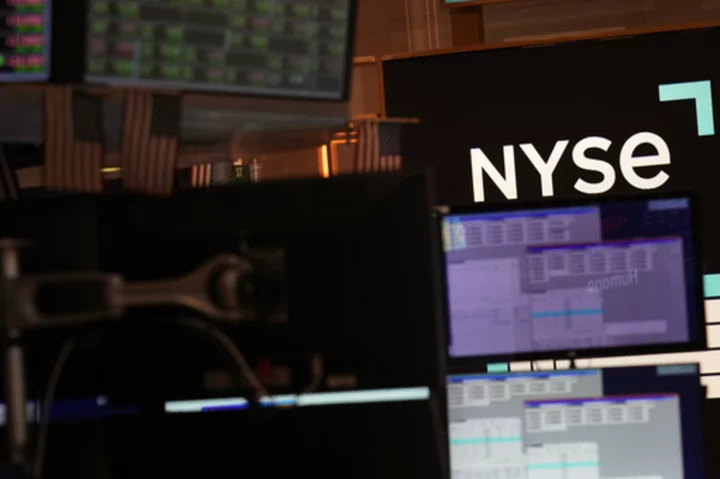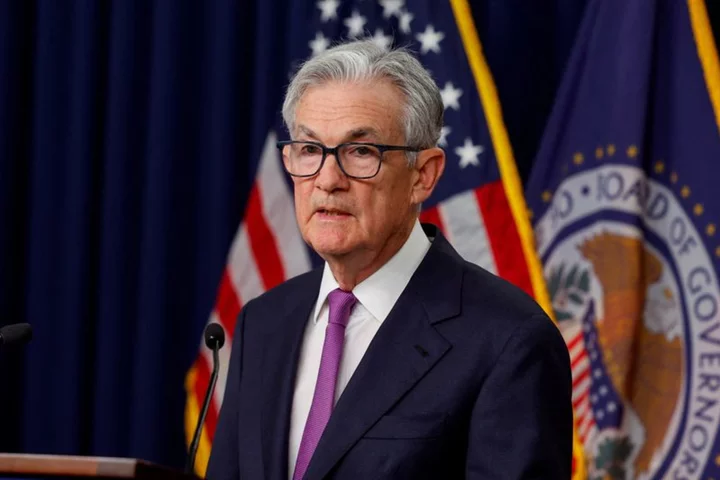Wall Street pointed toward gains before markets opened Thursday ahead of a closely watched U.S. inflation report.
Futures for the Dow Jones industrials and the S&P 500 each climbed 0.5% before the opening bell.
The U.S. government will give its monthly update on the inflation at the consumer level in less than an hour. Economists expect to see a small acceleration to 3.3% in July from 3% in June.
Tina Teng, markets analyst at CMC Markets, called the looming update “a pivotal event for global markets.”
U.S. Federal Reserve officials have said repeatedly that their upcoming decisions on interest rates would depend on the latest economic data, especially for inflation and the job market.
A hot reading on inflation would certainly support the view that the Fed’s job in battling inflation is far from done and that it may have to keep hiking interest rates. At the least, it could push the Fed to keep rates high for longer than expected.
High interest rates rates can cool inflation by slowing the entire economy. The Fed has already raised its federal funds rate to the highest level in more than two decades. Rate hikes historically take a long time to take full effect across the economy, so the risk of a recession remains a threat.
The U.S. will also release weekly jobless claims figures early Thursday. The U.S. job market has remained very strong, defying Fed attempts to cool off hiring as part of its campaign.
And while major corporate acquisitions have slowed somewhat, they are still arriving.
On Thursday, Tapestry, the parent company of luxury handbag and accessories retailer Coach, announced that it is buying Capri Holdings, which owns the Michael Kors, Versace and Jimmy Choo brands.
The approximately $8.5 billion deal puts Tapestry in a better position to take on its big European fashion rivals, such as LVMH and Kering.
Shares in Capri climbed 58% in premarket. Tapestry fell about 4%.
The Walt Disney Company is up more than 1% after CEO Bob Iger vowed to make its streaming services profitable through an October price hike on its ad-free Disney+ and Hulu plans and a crackdown on password sharing expected to extend through next year.
Elsewhere, Japan’s benchmark Nikkei 225 added 0.8% to finish at 32,473.65. Australia’s S&P/ASX 200 added 0.3% to 7,357.40. South Korea’s Kospi lost 0.1% to 2,601.56. Hong Kong’s Hang Seng was little changed, rising less than 0.1% to 19,248.26. The Shanghai Composite rose 0.3% to 3,254.56.
In addition to plunging imports and exports and concerns about deflation, sentiment in China was weighed down by U.S. President Joe Biden's order to block and regulate high-tech U.S.-based investments going toward China.
Biden signed an executive order Wednesday that covers advanced computer chips, micro electronics, quantum information technologies and artificial intelligence. The order seeks to blunt China’s ability to use U.S. investments in the country’s technology companies to upgrade its military, but also to preserve broader levels of trade that are vital for both nations’ economies.
In Europe at midday, France's CAC 40 surged 0.8%, while Germany's DAX gained 0.5%. Britain's FTSE 100 was unchanged.
In energy trading, benchmark U.S. crude lost 43 cents to $83.97 a barrel. Brent crude, the international standard, retreated 24 cents to $87.31 a barrel.
In currency trading, the U.S. dollar edged up to 143.84 Japanese yen from 143.67 yen. The euro cost $1.1024, up from $1.0979.
On Wednesday, the S&P 500 lost 0.7% and has now dropped six of the last seven days. The Dow fell 0.5% after flipping between gains and losses through the day. The Nasdaq composite finished 1.2% lower.
____
Kageyama reported from Tokyo; Ott reported from Silver Spring, Md.









